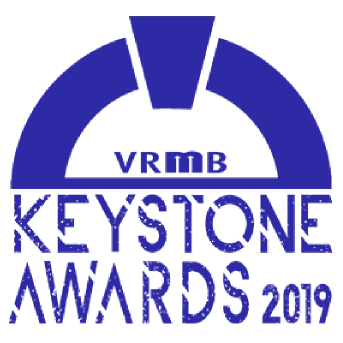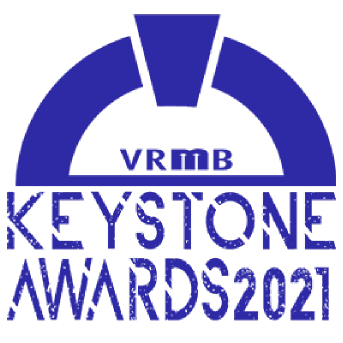As COVID-19 headlines continue announcing climbing infection rates and a global economic slowdown, it’s hard not to feel a bit panicky about the situation. In recent weeks, the hospitality industry was hit especially hard. We’ve seen travel restrictions, border closures, “social distancing” and general anxiety by potential guests affect their willingness to travel. If that wasn’t enough, our niche, the vacation rental industry saw a spike in cancelation requests – both on the major booking platforms and on the direct booking sites.
COVID-19 and what it means for the vacation rental industry
In the short-term we’re seeing a lot variance in how the downturn is affecting vacation rental owners and managers. It all depends on the location of the vacation rental business. On one end, there are many vacation rental owners, managers, and companies that are feeling the impact of cancelations and see no future bookings for coming weeks. But on the other hand, we’re seeing properties like cabins, cottages, rural getaways, and eco-destinations get completely booked for extended periods of time. It seems that domestic travelers from cities that aren’t under lockdown are trying to find a quiet place, away from other people, to hunker down. For hosts and managers in those situations, business is on the up.
In the long term, no one knows what the true impact will be. How long the pandemic will last and how long the slump afterwards will last remains a big unknown. We’re seeing positive news coming out of China and South Korea who seem to have blunted the spread of the virus. However, those countries still haven’t returned to normal: workers are still at home and the hospitality industry is still feeling the impact. Even in communities recovering from the virus, people aren’t packing their bags for a beach vacation anytime soon.
As for the recent financial downturn, it’s important to remember that the stock market isn’t a reflection of global economic health. In other words, we haven’t seen COVID-19 trigger a global recession yet. For the time being, many are able to continue working from home and earn their wages. Additionally, stimulus packages and interest rate cuts announced by many governments should help weather the storm – hoping that it doesn’t last for too long.
What to do now: Take measured action
No one in the vacation rental industry saw COVID-19 coming. But at least none of your competitors have a head start over you. And so now it’s a question of adapting and responding efficiently, as well as bracing your business from the effects of a downturn (if it happens). For the time being, many vacation rental owners and managers are responding in three ways: attempting to reduce vacancy rates at all costs, cutting expenses, and staying informed.
Reduce vacancy rate ASAP
Now’s the time to reduce your vacancy rate by any reasonable means. The wave of cancelations hurt, and the months of March and April likely won’t be your high watermark. But if you can attract domestic travelers, now’s the time to go after them. Here are a few tips to help you reduce your vacancy rate:
- Continue to keep your property operational to make the most of any short-notice bookings. If people are waiting for last-minute news updates before making plans, you want to make sure you can cash in on these late bookings.
- Consider lowering your rates, so you remain competitive. People are still keen for a bargain – even in moments of crisis. You’ll fill vacancies if your prices are attractive and competitive.
- Along the same lines, consider offering promotions and other discounts for long-term stays.
- Use marketing tools to communicate with customers and let them know that you’re doing everything in your power to keep things running as normal. Tell them that you understand their worries and reassure them about your commitments to hygiene and security.
- Consider what actions you can take to attract national (or domestic) travelers to your rentals. Are there local marketplaces you’re not a part of yet? Perhaps focus on more traditional marketing tactics like local newspapers ads or national directories.
Cut your expenses without going crazy
Another way to safeguard against a downturn in a vacation rental business is to cut current expenses – without reducing the quality of your service.
- Consider cutting back on welcome gifts and freebies.
- If you employ the services of gardeners or landscapers, could you reduce how often they come?
- When it comes to reducing employee counts and salaries, you have a few options. Some employees would be willingly reduce their hours in exchange for continued employment. Others would rather go on unemployment. Whichever decision you choose depends on your business and your location. But ideally, you want to retain that expertise you’ve built up over the years. When an employee leaves, so does their corporate knowledge. Consider the cost of replacing them when the industry picks up again vs saving on salaries now.
- Consider cutting back on cable TV temporarily and maybe install a DVD player instead. If your properties are equipped with smart TVs, consider a communal streaming account like Netflix, Crave, or Hulu.
- Commission an energy audit to see how you might be able to reduce your energy bill. Or consider installing a smart thermostat like Nest so you can control the heating remotely, turning it off as soon as guests leave, saving on your energy bills.
- If you’re still maintaining a landline in your vacation rental property, cut it.
- Some lenders are offering mortgage deferral schemes. Deferring mortgage payments could be the solution to short-term cash flow problems without the downside of disrupting your operations.
Keeping clean
This is the big one. COVID-19 is still a relatively unknown virus and how the virus can live on surfaces is yet to be fully understood. According to the WHO, coronaviruses may survive on surfaces anywhere between a few hours to several days – which is not hugely helpful, considering hygiene is a critical element in every vacation rental company.
Because proper cleaning practices are still a big unknown, it’s better to be safe than sorry. This means wiping down any surfaces that are often touched is essential. Experts are confident that most household cleaners can kill the virus.
Here are some tips for ensuring your rental property meets the necessary hygiene requirements:
- COVID-19 is most likely to spread in the kitchen and the toilet (two high-traffic areas prone to contact or where someone may cough). Make sure your cleaning team focuses on these areas, wiping down each surface with a recommended cleaner.
- Use disposable cloths or paper towels as much as or wash reusable materials at 140F after use.
- Disinfect kitchen brushes and sponges with detergent and warm water.
- Ask your cleaning team to pay particular attention to the door and drawer handles. Evidence suggests COVID-19 can be transmitted less easily from soft surfaces than hard surfaces like handles and elevator buttons.
- Hostfully’s integrations with software like Properly and Breezeway can help you ensure all these cleaning jobs are done right, streamlining inspections and managing turnover operations.
- Provide free hand sanitizer and soap to your guests.
That said, don’t forget about your cleaning staff. Make sure they clean their hands before and after they enter a rental. If you haven’t already, educate every staff member on hygiene best practices relating to this particular virus (at the end of the article, we provide useful links).
Self check-in and check-out
So far we’ve focused on keeping the guest safe from COVID-19. But what about yourself and your hospitality staff? The best prevention to the virus is limiting exposure which is why we think this is a great time to implement technology to facilitate self check-in and check-out. One easy and cost-effective way to do this is with digital guidebooks. With Hostfully’s digital guidebooks, hosts can include all relevant check-in information:

Just share the link to the guidebook to your guests, and they have everything they need for a smooth check-in. The other advantage of using digital guidebooks during the COVID-19 crisis is that you can offer local recommendations and give clear instructions on how to operate the property features without having to be there in person. Guidebooks are also easy to adapt, so you can modify them with regional advice regarding COVID-19 if an outbreak occurs in your area.
COVID-19 resources for vacation rental owners
How long this new coronavirus will stick around is currently anyone’s guess. Right now, there’s no reason to panic but plan for less bookings by reducing overheads and stay informed on the latest updates from credible sources. Here are a few we’re following ourselves:
- CDC fact sheet of what is known of COVID-19 (web page and printable pdf)
- CDC COVID-19 situation summary (globally and in the US)
- Johns Hopkins University infographic on COVID-19 myths and facts (link)
- Johns Hopkins University daily newsletter on COVID-19 (sign up with this link)
- WHO ‘Events as they happen’ page (link)
- EPA list of products against COVID-19 (link)









